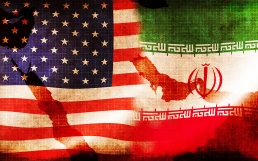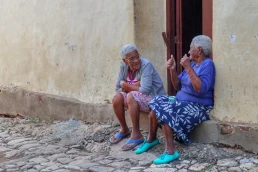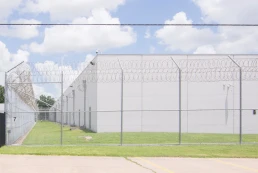Abolitionists have made great progress and the death penalty is in retreat. For capital punishment advocates, desperate measures have been required to keep the machinery of death running.
By Austin Sarat, Slate
Now more than ever there are two distinct worlds of capital punishment in the United States. It has long been the case that the death penalty has flourished in some regions of the country and in some states more than in others. And the release of the Death Penalty Information Center’s (DPIC) annual report for 2021 makes clear that the distance between those two divergent paths rapidly increased last year.

“The death penalty in 2021 was defined by two competing forces: the continuing long-term erosion of capital punishment across most of the country, and extreme conduct by a dwindling number of outlier jurisdictions to continue to pursue death sentences and executions,” The DPIC report noted. Capital punishment increasingly is used in just a few idiosyncratic locales and offers another fault line in this country’s fragmented political, legal, and cultural life.
As in many other areas of American life, supporters and opponents of the death penalty regard each other as enemies, not just as opponents. They see the world in fundamentally different ways and think of the political struggle over the death penalty as a struggle over fundamental values and different ways of life.
As Emory University historian Daniel LaChance explains, “These days, support for capital punishment is concentrated among whites, Protestants, and Republicans—key demographic constituencies of the conservative side of the late twentieth century culture wars…. Support for the death penalty is not only a tool for controlling crime, but also an expression of allegiance to values—personal responsibility, the sacredness of innocent life, and the firmness of a nation’s convictions—that they feel have degraded in the United States since the 1960s.”
Progressives, in contrast, see America’s continuing use of capital punishment as unjust, barbaric, and a sign of moral backwardness.
As a result, we can expect death penalty politics to grow more, not less, bitter and more intense, as the two worlds of capital punishment come to terms with new realities.
What are these new realities?
Recent Posts
The Iranian Trap: Neither Military Action Nor Nuclear Negotiations Can Solve Trump’s (and Israel’s) Conundrum
February 16, 2026
Take Action Now After a failed regime-change strategy and an increasingly risky military buildup, the Trump administration turns back to nuclear…
Suffocating an Island: What the U.S. Blockade Is Doing to Cuba
February 16, 2026
Take Action Now Electric motorcycles are Cuba’s response to the fuel crisis.By Medea Benjamin Marta Jiménez, a hairdresser in Cuba’s eastern city…
For Trump and Rubio, Colonizing Cuba Is Not About Freedom—It’s About Their Own Egos
February 15, 2026
Take Action Now For Trump, regime change in Cuba will cement his legacy. For Rubio, it will mark the culmination of his childhood dream. In their…
Trump’s Concentration Camp Build-Out Includes Nearly $40 Billion for Warehouse Conversions
February 14, 2026
Take Action Now “Germany’s concentration camps didn’t start as instruments of mass murder, and neither have ours,” wrote talk show host Thom…




